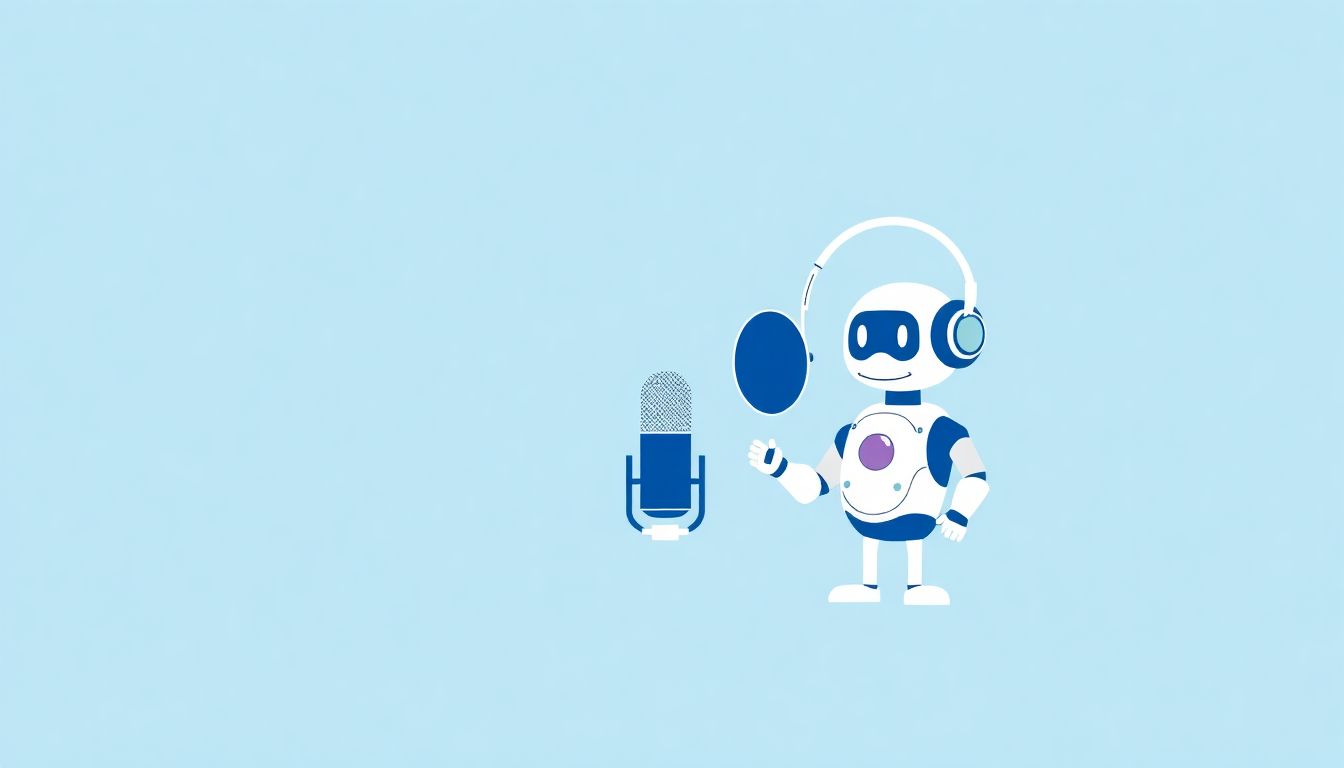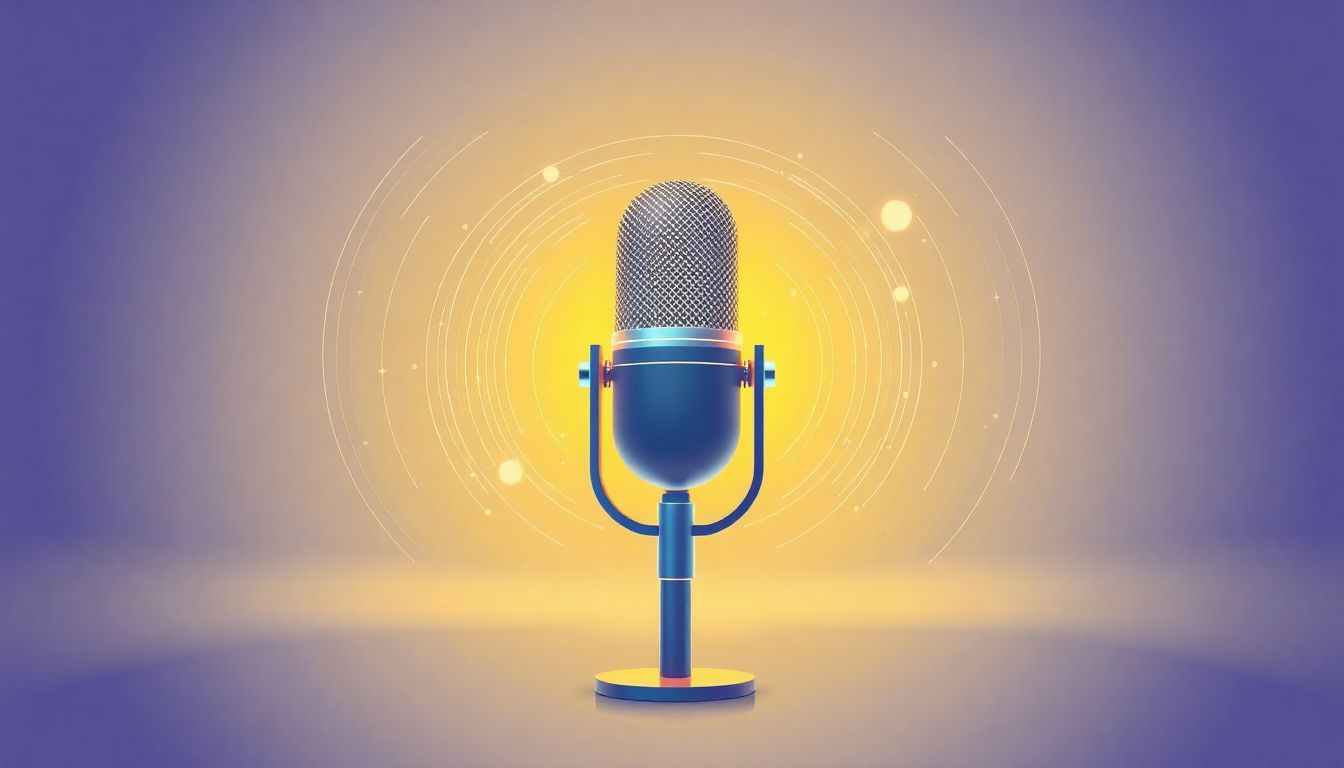Creating engaging podcast dialogue can be a real challenge, right? You may find yourself grappling with writer’s block or struggling to keep the conversation lively and interesting. It’s tough to keep things fresh when you’re pouring hours into perfecting your script.
But what if there was a way to spice up your show without the headache? If you stick around, I’ll show you how tools like ChatGPT can help you generate dynamic dialogue ideas and streamline your production process. Imagine having a brainstorming buddy available 24/7!
In this blog, we’ll explore how to harness ChatGPT for your podcast, including tips for effective use, real-life examples, and even tackling common challenges. Get ready to elevate your podcasting game!
Key Takeaways
- ChatGPT can help generate engaging podcast dialogue and ideas quickly, reducing writer’s block.
- Using AI saves time and money, making it a great option for independent podcasters.
- Effective prompts are key; specify the topic to get relevant content for your podcast episodes.
- Balance AI-generated dialogue with personal touches for relatable and authentic conversations.
- Regularly review and edit AI outputs to maintain quality and fit your podcast’s voice.
- Incorporate brainstorming sessions with ChatGPT to keep content fresh and dynamic.

Using ChatGPT to Create Engaging Podcast Dialogue
ChatGPT can be a game changer when it comes to crafting captivating dialogue for your podcast.
By leveraging AI-generated content, you can easily generate ideas for conversations that resonate with your audience.
This not only saves time but also elevates the quality of your podcast dialogue, making it more engaging and dynamic.
Incorporate natural language processing techniques to help ChatGPT understand context and generate relevant responses that fit your podcast’s tone.
For instance, you can use prompts like:
- “Generate a conversation between two friends discussing the benefits of minimalism.”
- “Create a dialogue for a podcast episode about overcoming fear in public speaking.”
- “Draft a humorous exchange between a host and guest about the quirks of remote work.”
These prompts can help create authentic and relatable content that keeps listeners tuned in.
Benefits of ChatGPT in Podcast Production
Using ChatGPT for podcast production comes with numerous benefits that can enhance your overall workflow.
One significant advantage is the efficiency it brings to the scriptwriting process.
AI-generated dialogue allows podcasters to brainstorm and draft content quickly, allowing them to focus more on delivery and production.
ChatGPT is also cost-effective compared to hiring scriptwriters or freelance help, making it an ideal option for independent podcasters.
Additionally, by incorporating AI dialogue, you can maintain a consistent quality across episodes, ensuring that your audience knows what to expect.
To make the most of ChatGPT, you might consider using these prompts:
- “Outline a podcast episode on mental health with key talking points.”
- “Suggest three different angles for a podcast discussing travel trends.”
- “Create a list of questions for interviewing an expert on digital marketing.”
Leveraging these tools can significantly enhance audience engagement, ultimately leading to a more successful podcast.
How to Generate Dialogue Ideas with ChatGPT
Generating dialogue ideas with ChatGPT can be straightforward if done right.
Start by defining the theme or topic of your podcast and use specific prompts to guide the AI’s input.
For effective brainstorming, keep the prompts clear and detailed.
Here are some effective prompts to use:
- “Generate a list of dialogue prompts for a podcast focused on entrepreneurship.”
- “Help me brainstorm episode ideas about sustainability and eco-friendly living.”
- “Create a fictional dialogue that highlights the importance of mental health.”
These prompts can lead to a plethora of ideas that cater to your podcast’s niche, ultimately leading to rich and engaging content.
Additionally, scheduling regular brainstorming sessions with ChatGPT can help keep the creative momentum going, ensuring fresh ideas for your episodes.
Tips for Using ChatGPT Effectively in Podcasts
To make the most of ChatGPT in your podcast production, consider a few effective strategies.
First, always fine-tune the AI’s responses by providing context and direction in your prompts.
This will help you get content that’s more aligned with your vision and audience.
It’s also crucial to maintain a balance between AI-generated content and your personal touch.
Editing AI scripts for clarity and relatability can significantly enhance the final output.
Here are some helpful prompts to ensure quality outputs:
- “Revise this dialogue to add a more humorous tone.”
- “Make the following conversation more concise while retaining key points.”
- “Adjust this dialogue to fit a casual conversational style.”
Establishing feedback loops can also aid in refining the dialogue over time.
Involving trusted collaborators for a round of reviews after initial drafts can lead to more polished content.
For more insights on how you can effectively leverage prompts, check out these articles on prompts for mental health and creative writing prompts. They provide excellent examples that can be applied across various contexts, including podcasting.

Integrating ChatGPT Dialogue into Your Podcast Workflow
Integrating ChatGPT into your podcast workflow can streamline the entire production process.
Start by incorporating AI-generated dialogue during the planning phase.
Utilize ChatGPT to create detailed outlines that can serve as a roadmap for your episodes.
This makes the scriptwriting process more organized and efficient.
For instance, ask ChatGPT:
- “Outline a podcast episode discussing the latest tech trends, including key themes and guest recommendations.”
- “Create a production checklist for a podcast episode about personal finance.”
- “Draft a timeline for producing an interview episode, including pre-production, recording, and editing stages.”
Once you have generated your content, it’s essential to edit ChatGPT scripts thoroughly.
Adjust AI outputs to match your podcast’s voice while enhancing flow and clarity.
Finally, ensure you collaborate with your team regularly to incorporate feedback.
This collaboration can maximize the strengths of both human creativity and AI efficiency.
Real-Life Examples of ChatGPT in Podcasting
Seeing real-life examples of ChatGPT in action can be inspiring and informative.
Take the case of a popular podcast like “The AI Alignment Podcast,” which has effectively utilized ChatGPT for dialogue generation.
By integrating AI-generated content, they have been able to maintain a consistent quality while exploring a broad range of topics.
Listeners have responded positively to the dynamic conversations created between hosts and AI-generated guest characters.
Another example is “The Creative Penn Podcast,” where the host used ChatGPT to brainstorm episode ideas.
By doubling down on practical prompts like:
- “List five creative ways to market a new book in today’s digital landscape.”
- “Generate a humorous dialogue illustrating the challenges of self-publishing.”
- “Suggest episode themes related to emerging trends in fiction writing.”
These interactions between the host and ChatGPT have resulted in engaging content that resonates with the audience.
Common Challenges and Solutions with ChatGPT Dialogue
While using ChatGPT for dialogue creation is beneficial, it does come with its own set of challenges.
One common issue is ensuring the AI understands the context properly.
To tackle this, always include specific instructions in your prompts.
If the output seems off, you can refine your command.
For example, use prompts like:
- “Generate dialogue between a mentor and a mentee discussing career path choices in tech.”
- “Create a conversation about the importance of face-to-face networking in the digital age.”
This allows the AI to produce more contextually accurate content.
Another challenge is repetitive content, which can arise from relying too heavily on the same prompts.
To prevent this, alter your prompts frequently or change up the angles you want to explore.
Also, balance AI contributions with your personal insights.
Finally, if you notice a drop in quality, it’s essential to adjust your expectations and provide clear feedback on what you’re looking for.
Engaging with each draft allows for continuous improvement in the dialogue generated by ChatGPT.

Future of Podcasting with AI Dialogue Generation
The future of podcasting with AI dialogue generation looks promising, as innovations continue to reshape how content is created and consumed.
With advancements in AI technology, we can expect a more personalized listening experience for audiences.
Imagine podcast episodes that adapt in real-time based on listener preferences, keeping engagement levels high.
Also, as AI tools become more sophisticated, they will offer higher-quality outputs, minimizing the need for extensive editing.
For podcasters, this means even more time saved in production while increasing the volume of content that can be created.
To stay ahead in this evolving landscape, consider using these prompts:
- “Generate a futuristic dialogue about how AI will transform the podcasting industry.”
- “Suggest new podcast formats that leverage AI for interactive storytelling.”
- “Draft a discussion on the ethical implications of using AI in creative industries.”
Looking ahead, collaborations between human hosts and AI-generated elements will likely become the norm, offering a unique blend of creativity and efficiency.
By embracing these technological advancements and integrating them into your strategy, you can build a sustainable podcast that captivates listeners and keeps pace with industry changes.
FAQs
ChatGPT enhances podcast production by providing creative dialogue, saving time on scriptwriting, and generating diverse perspectives. It aids in brainstorming episode concepts and maintaining listener engagement with dynamic content.
To integrate ChatGPT dialogue, start by generating topics and questions, then draft content collaboratively. Incorporate its suggestions into your script, and adjust for flow and tone to suit your podcast’s style.
Common challenges include ensuring dialogue authenticity, maintaining a consistent tone, and handling context sensitivity. Regularly reviewing and editing the generated content can help mitigate these issues effectively.
The future of podcasting with AI tools like ChatGPT looks promising, featuring personalized content, enhanced engagement, and streamlined production processes, allowing creators to focus more on creativity and connection with their audience.
